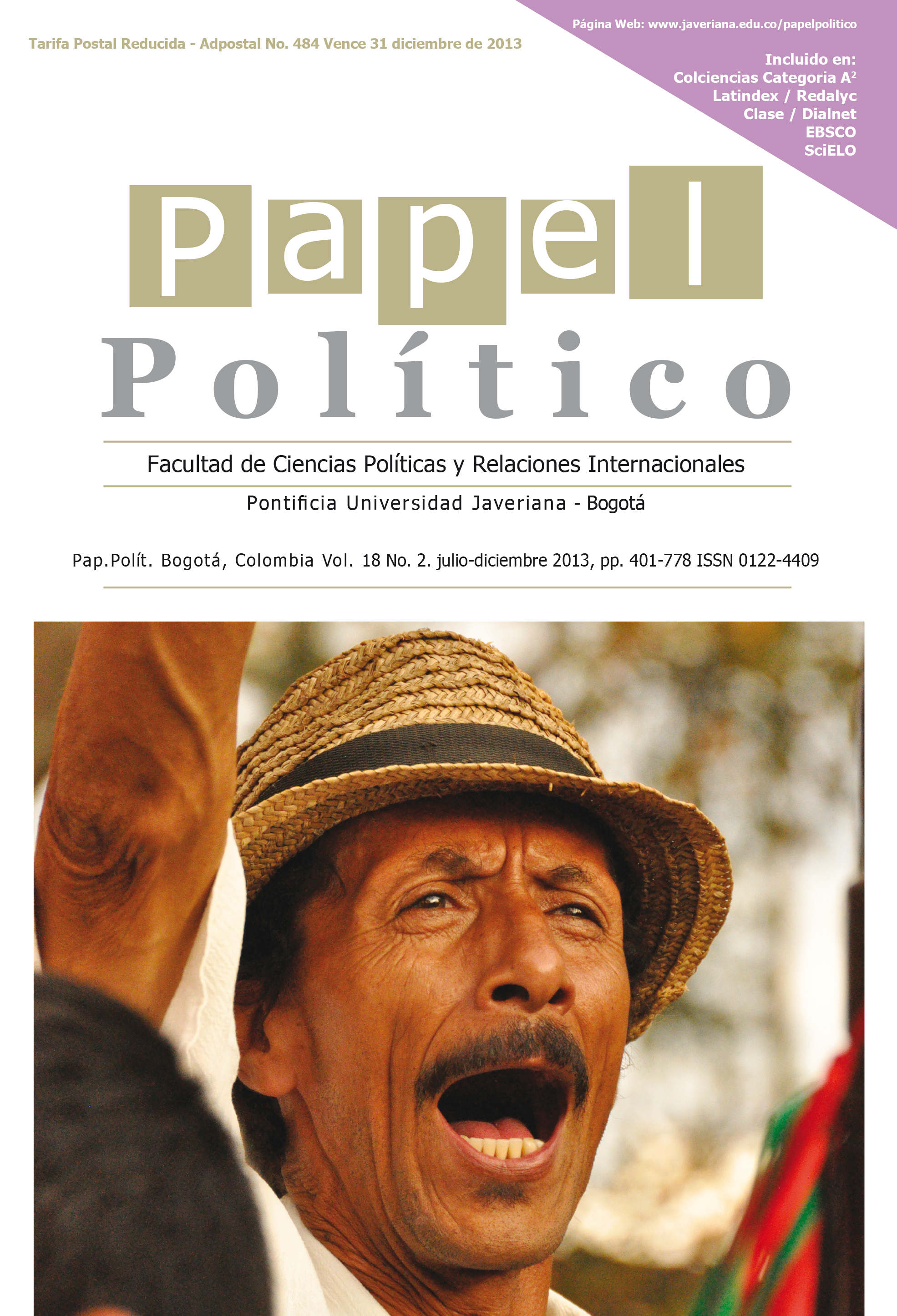Resumen
El artículo interpreta los desafíos que tiene la política exterior colombiana, tanto en el plano regional como en el global, de cara a la proyección de Brasil como potencia regional y jugador global. Para ello, en primer lugar, se lleva a cabo un acercamiento teórico al escenario regional actual y al horizonte de las relaciones colombo-brasileñas, desde la perspectiva de algunos presupuestos del realismo neoclásico (predominantemente) y del neoliberalismo institucional (subsidiariamente). En segundo lugar, se examinan las fuentes y alcances de la presunta caída de la hegemonía norteamericana y el ascenso gradual de la hegemonía brasileña en Suramérica. En tercer lugar, se analiza la calidad de Colombia como potencia secundaria, luego la diversificación geográfica y temática de su política exterior a partir de agosto de 2010, y sus estrategias de competencia y cooperación con respecto a Brasil en la región. Finalmente, se identifican y se interpretan las perspectivas bilaterales y multilaterales de la profundización de los intercambios y compromisos entre Colombiay Brasil, que tendrían un alto potencial para institucionalizar una alianza estratégica multitemática con repercusiones importantes para impulsar y afianzar el proceso de regionalizaciónen Suramérica.Esta revista científica se encuentra registrada bajo la licencia Creative Commons Reconocimiento 4.0 Internacional. Por lo tanto, esta obra se puede reproducir, distribuir y comunicar públicamente en formato digital, siempre que se reconozca el nombre de los autores y a la Pontificia Universidad Javeriana. Se permite citar, adaptar, transformar, autoarchivar, republicar y crear a partir del material, para cualquier finalidad (incluso comercial), siempre que se reconozca adecuadamente la autoría, se proporcione un enlace a la obra original y se indique si se han realizado cambios. La Pontificia Universidad Javeriana no retiene los derechos sobre las obras publicadas y los contenidos son responsabilidad exclusiva de los autores, quienes conservan sus derechos morales, intelectuales, de privacidad y publicidad.
El aval sobre la intervención de la obra (revisión, corrección de estilo, traducción, diagramación) y su posterior divulgación se otorga mediante una licencia de uso y no a través de una cesión de derechos, lo que representa que la revista y la Pontificia Universidad Javeriana se eximen de cualquier responsabilidad que se pueda derivar de una mala práctica ética por parte de los autores. En consecuencia de la protección brindada por la licencia de uso, la revista no se encuentra en la obligación de publicar retractaciones o modificar la información ya publicada, a no ser que la errata surja del proceso de gestión editorial. La publicación de contenidos en esta revista no representa regalías para los contribuyentes.


